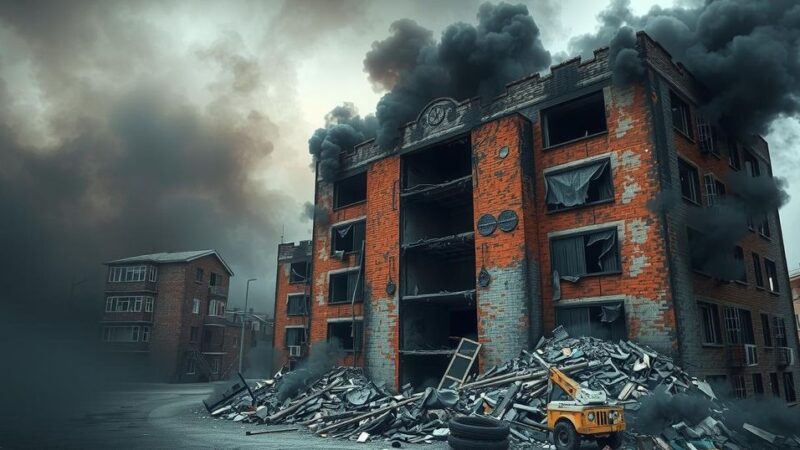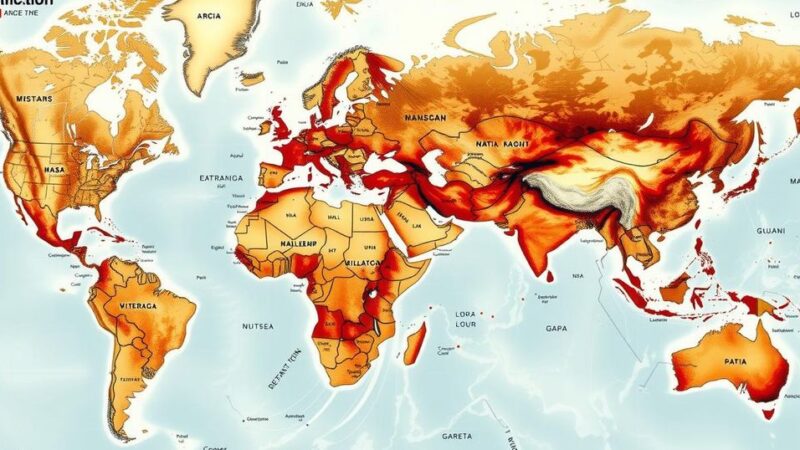A ceasefire on the Lebanon-Syria border has been established following an agreement between defense ministers. Despite this, displaced residents remain frustrated as the Syrian army has taken control of the town. Negotiations for a Syrian withdrawal and the return of displaced individuals have been unsuccessful thus far.
A ceasefire has been successfully maintained along Lebanon’s eastern border after an agreement between the defense ministers of Lebanon and Syria. Military intelligence and security officials from both nations are overseeing the ceasefire’s implementation. However, the truce has not alleviated the frustrations of residents displaced from Hawsh al-Sayyid Ali, who remain without homes.
The Syrian army has taken control of the border town, extending its presence into Lebanese territory. The area has become inaccessible, with smoke visible rising across the region. The Lebanese Army has established a presence opposite the advancing Syrian forces, who have moved close to key locations such as the local school and have taken over a Lebanese Army checkpoint.
Local clan members, armed and vigilant, have chosen not to confront the Syrian soldiers directly, trusting the Lebanese Army’s directive. The military has deployed reinforcements from its airborne regiment to the vicinity of Hawsh al-Sayyid Ali; however, no action has been initiated at the reporting time.
Negotiations between Lebanese military intelligence and the Syrian army have yet to yield a resolution, either to facilitate a Syrian withdrawal or to allow displaced residents to return to their homes. In a related effort, the International Committee of the Red Cross is working to retrieve the body of a Lebanese man from the Haj Hassan family, who was tragically killed outside his residence in the area.
In summary, while a ceasefire agreement has been implemented along the Lebanese-Syrian border, challenges persist. The Syrian army’s control over parts of the border town has further complicated the situation for displaced residents. Continuous negotiations and humanitarian efforts, such as those from the ICRC, are crucial to address the immediate needs of affected families and to secure lasting peace in the region.
Original Source: www.lbcgroup.tv






